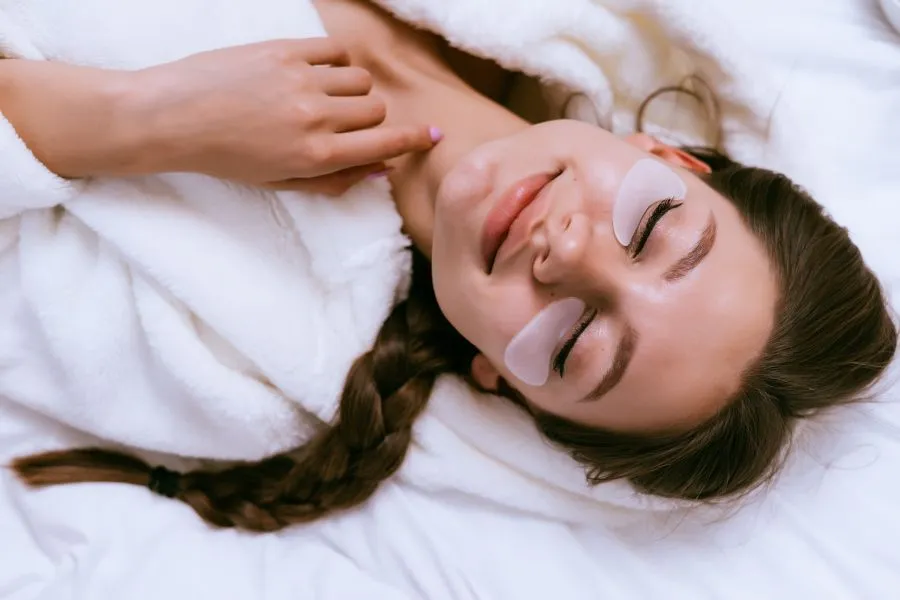World Mental Health Day: Oriflame finds emotional connection fuels global beauty industry
Key takeaways
- Consumers prioritize emotional well-being over physical appearance, seeking beauty products that enhance self-confidence.
- The Oriflame Beauty and Wellbeing Report shows that women globally are increasingly connecting beauty to overall well-being.
- Mental health is becoming central to beauty, with Gen Z and millennials expecting brands to offer products that support emotional health and relaxation.

Oriflame has found that beauty consumers’ main goal from the beauty industry is to feel emotionally supported, connected, and in control.
The skin care brand’s first Beauty and Wellbeing Report has revealed that 71% of consumers believe society overemphasizes physical appearance, and instead, individuals place a greater value on self-confidence (47%) and happiness (36%).
The report is based on a study of 3,500 women across seven countries. Almost all (95%) of the respondents recognize a link between beauty and well-being, and 42% see a strong link between the two. About 43% of respondents connected beauty with inner and outer qualities.
“Looking good makes me happy” was ranked as the top choice for enhancing well-being. Other benefits also included “feeling more positive about life,” “finding inner peace when they look good,” and “feeling mentally refreshed after caring about their appearance.”
Oriflame says its report reveals “a major shift in how women around the world experience and define beauty.” The research highlights beauty’s role in enhancing emotional well-being, self-confidence, and daily self-care.
“This report reaffirms what we’ve believed for decades: that beauty is a deeply emotional and empowering experience,” says Anna Malmhake, CEO and president of Oriflame. “Across the world, women are telling us that beauty rituals help them feel grounded, confident, and connected to themselves.”
Global breakdown
The Beauty and Wellbeing Report examined how beauty habits intersect with emotional, physical, and social well-being. It was commissioned by Oriflame and conducted independently by Toluna in November–December 2024. It surveyed women aged 18–75 across China, India, Mexico, Nigeria, Poland, Turkey, and the UK.
 Emotional well-being is shaping global beauty trends. Across all countries, 64% of women are most interested in personalized skin care and nutrition.
Emotional well-being is shaping global beauty trends. Across all countries, 64% of women are most interested in personalized skin care and nutrition.
Mexican consumers are more satisfied with their well-being (almost two-thirds) than those globally.
In India, self-confidence is the top beauty descriptor, ranking higher than physical attributes.
China emphasised the importance of product safety and education, with 50% Chinese women looking for educational content on safe ingredients.
Approximately 68% of UK consumers think longevity is the most important beauty and health intervention for having a happier and healthier life, compared to globally (55%).
In Poland, society and individuals highly prioritize and value a “well-groomed appearance” and “looking healthy.”
In Nigeria, the biggest barrier to meeting well-being needs is a lack of money (58%), compared to the global level (38%).
In Turkey, three-quarters feel that society’s beauty standard is more likely to be driven by physical attributes. This is significantly higher than their global counterparts but lower personally. Only 41% of Turkish women are concerned about physical appearance on a personal level.
Mental well-being and brand opportunity
According to Innova Market Insights, this intersection of mental well-being and consumption will become more interlinked.
The market researcher indicates that Gen Z and millennials worldwide see mental health as a key part of well-being. It says that brands should focus on helping consumers take charge of their mental health with personalized, accessible routines.Women worldwide prioritize self-confidence over appearance.
Innova Market Insights suggests that brands support consumers by offering products that promote emotional independence, such as journaling, mood tracking, and relaxation tools.
“Stress is a significant concern for consumers, so products that offer calming support with comforting formats and ingredients can be very appealing,” it says.
“Since sleep is essential for mental well-being, brands can provide sleep-focused products that promote quality and relaxation. Embracing these trends helps Gen Z and millennials manage their emotional health and feel empowered.”












